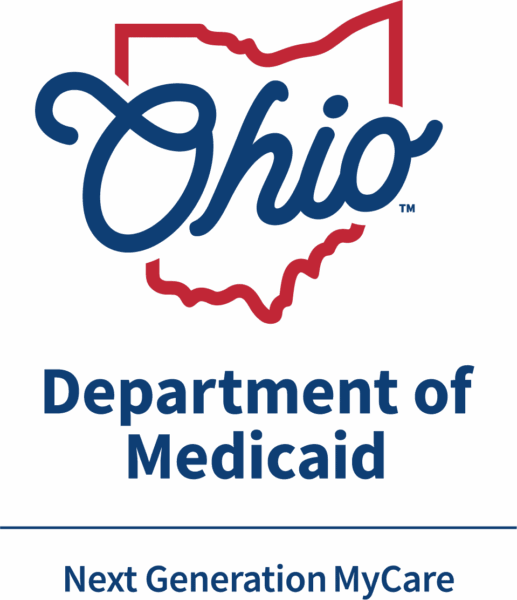5 Ways to Get Paid to Take Care of a Family Member
When a spouse (24% of all family caregivers), or an adult child (60%) quit their job in order to devote themselves to the elderly care jobs of a disabled family member, many make often-ignored financial sacrifices beyond lost wages (e.g., pensions or 401k’s, social security benefits, etc.)
Here are 5 programs that will help with your finances as you take care of your family members.
Additional resources and programs to get paid as a family caregiver

1- Medicaid-Funded Programs (Including CDPAP)
CDPAP (Consumer Directed Personal Assistance Program) is a Medicaid-funded program that allows care recipients to hire almost any caregiver they choose, including the family member who is currently providing the care.
A sister program is CDPAS – Consumer Directed Personal Assistance Services. This decides on the type of caregiving services you need, for example, assistance with companionship and/or activities of daily living. As far as you are concerned, the two programs are in essence the same.
Here is a step-by-step guide to help you reap some benefits from that program:
- To be eligible, your loved one must already be in the Medicaid program, need home care, and either be in charge of their own affairs or have a designated representative, i.e., someone with a power of attorney, advance health directive, or be otherwise empowered to make decisions on the patient’s behalf regarding how their home care support services are provided.
- The care recipient tells his or her plan about the request for CDPAP services and have a medical professional sign off that he or she needs home care. And their caregiver (family or friend) must provide evidence that they are legal to work in the U.S. and get a physical and bloodwork done showing that they are healthy enough to care for a patient.
- When successful, your loved one will be allotted a certain number of hours per week, depending on their overall physical disability and mental health conditions.
- You, the paid caregiver, will receive a paycheck based on an hourly pay rate for each hour worked servicing the patient.
FreedomCare works with specific state programs, and each program has its own requirements.
To recap, many states have programs that pay family members or a friend to serve as a caregiver, although searching for them and then helping them get qualified can be daunting.
You can find out more about your state’s relevant programs by contacting:
Medicaid (or Cash and Counselling Programs):
- Medicaid (or Cash and Counselling Programs): Medicaid offers a variety of programs that aim at assisting with long-term in-home or in-community care, meal deliveries, and day care centers so that care recipients may get home-based rather than institutional help. To get you started with your research, contact the Eldercare Locator at 1-800-677-1116 or go to a good starting point for Medicaid Home Attendant Services.
To get you started with your research, contact the Eldercare Locator at 1-800-677-1116 or go to a good starting point for Medicaid Home Attendant Services.
National Resource Center for Participant-Directed Services
- This national program caters for people with disabilities (including the aging population) with objectives that are similar to the above-described Medicaid-type programs.
Here is a link to that National Resource Center.
2- Caregiver Contracts
Also referred to as a personal care agreement, or elder care contract, a caregiver contract is a formal agreement, usually among family members, to provide that the person providing care to a loved one be compensated, particularly if he or she has to let go of a job so as to care for the elderly parent or relative.
Here are some of the benefits of drawing up such a contractual document:
- Shedding clarity over caregiving functions: The care recipient may be a person of means, perhaps from a lifetime of productive work, or from other sources. Instead of family members arguing over expenditures that could affect what they might ultimately inherit, or receive as gifts, this type of contract does not leave any ambiguity when it comes to compensating the family caregiver.
- Families pooling resources: Family members may also, on occasion, wish to pool resources to pay for one member of the family to devote themselves to the care of a loved one. This type of contract delineates the terms and tasks to be performed, once again shedding clarity on an issue that may otherwise pit one family member against another.
- Relationships with outside payers: There are also times when the care recipient would be reimbursed for long-term care expenditures by an outside entity such as a long-term care insurance company, worker’s compensation, the Veterans Administration (VA), or some Medicaid program. In all of those cases, a caregiver contract would pave the way for the family caretaker to be formally recognized and compensated.
While it’s recommended to consult an elder law attorney to help you draft a caregiver contract, that process can be time-consuming, expensive, and still leave families navigating the rest of the Medicaid system on their own. With FreedomCare, you skip the legal complexity. We work directly with state-approved programs to help family members get paid for the care they’re already giving—no attorney needed, no complicated contracts. It’s a simpler, faster, and more supported way to get the help you deserve.
4- Long-Term Care Insurance
If your loved one, in the past, had the foresight to purchase a long-term care insurance policy of the type that pays for home care (as is the case with the vast majority of these policies), then you have a great opportunity to get paid, as follows:
- If the policy requires the in-home care to be performed by a licensed home care agency, then you and your family member can contact your nearest home care agency. They will welcome you both with open arms, your loved one as their latest client, paid by the insurer, and you as their latest caregiver, paid by the agency. This arrangement is ideal for the home care agency since it adds to their revenues without any additional staffing effort.
- If the policy is not limited to licensed home care agencies, then a caregiver contract would serve you well. You would still need to negotiate with the insurance carrier, based on your caregiver contract. If you don’t have such a contract, then develop one, stipulating that you as the caregiver would be paid as much as a home care agency non-certified nursing assistant is paid.
By the way, using a home care agency is something to contemplate in all cases where your loved one is being reimbursed for long-term care expenditures. For example, the Worker’s Compensation (or a court) may be reimbursing for a work-related injury that your loved one may have sustained.
5-Indirect Payment Via a Tax Credit
Not only are you likely not getting paid to care for your family member, but you may also be covering many out-of-pocket costs—things like home modifications, transportation, food, assistive devices, and medical supplies.
According to AARP, family caregivers spend a significant amount of their own money each year supporting their loved ones’ needs beyond the hands-on care itself.
One option to offset these expenses is through the IRS’s Credit for Caring Act. This federal tax credit allows eligible family caregivers to claim a percentage of their qualifying caregiving expenses as a credit on their tax return.
To be eligible, you must:
- Be a direct relative of the person you’re caring for (such as a parent, spouse, or adult child)
- Provide care for someone with physical or mental functional limitations
- Have properly documented your caregiving-related expenses
- Have earned a minimum level of taxable income for the year you’re claiming the credit
While this credit can offer some relief, it’s not direct pay—and it requires careful record-keeping and meeting IRS requirements.
That’s why many families turn to FreedomCare instead. With FreedomCare, eligible family members can get paid now for the care they’re already providing—not months later through a tax return, and not limited to just certain types of expenses. We help you navigate state programs and take care of the paperwork so you can focus on what matters: your loved one.
For more information on tax credits, here is a link to the AARP.
Final Thoughts on Getting Compensated for Taking Care of Your Loved One
One statistic that stood out to us was how many family caregivers are supporting loved ones with serious, long-term conditions like Alzheimer’s, other forms of dementia, physical disabilities, or chronic illnesses. Anyone who’s been in that role knows just how overwhelming and all-consuming caregiving can become, no matter the diagnosis.
As a family caregiver, irrespective of what your loved one suffers from, you take on enormous open-ended responsibilities that are stressful, often financially devastating, and always disruptive when it comes to your own personal growth and well-being.
The least that you can do is look for ways to at least get compensated for a portion of the time, effort and expenses you lay out on behalf of your loved one.
We therefore sincerely hope that some of the venues we described in this article prove appropriate for your circumstances and useful to you in receiving compensation for what you do.
If you’re ready to explore a path that truly values your role as a caregiver, FreedomCare is here to help.
We’ve helped thousands of families just like yours get paid for the care they’re already giving, without jumping through endless hoops or dealing with complicated paperwork alone.
Reach out to see if you’re eligible, and let us support you the way you’ve been supporting your loved one.








